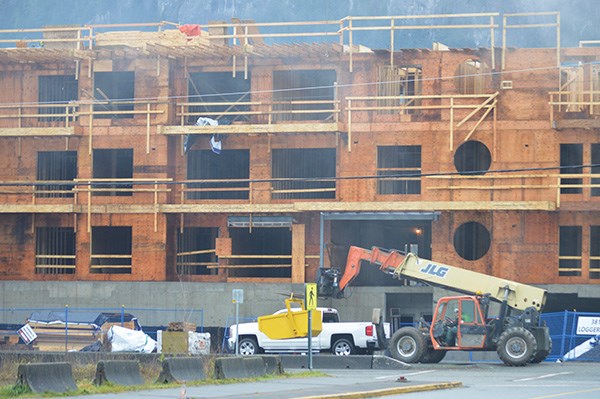The higher property assessments that Squamish homeowners received last week won’t necessarily mean huge jumps in municipal property taxes, according to the mayor. Squamish assessments were up 17 per cent.
“The misnomer is that people think because the property tax assessments go up that we don’t change the mill rate and we get a whole pile of money, well that would be crazy,” said Mayor Patricia Heintzman. “We don’t always go, ‘Oh, the assessments are really high, we can jack taxes up.’ That is not how it works.”
Heintzman added that the BC Assessment depends on the individual home and the neighbourhood. Some residents may find their property taxes go down, she said.
“If everybody’s [assessment] goes up, then the people whose went up more may have a bigger increase, and the people whose went up less may see a slight decrease in their taxes,” she said.
Council, which is currently in the midst of budget deliberations, is contemplating a 4.8 per cent budget increase over last year’s costs. Revenue has increased about three per cent from new building stock, the mayor said.
“If we have a three-per-cent increase in revenue because of new stock and we have a 4.8 per cent increase in the budget, that might only be a one or two per cent increase in the overall tax,” she said.
The latest Squamish residential property value assessments increased by 17.33 per cent over last year, compared with an increase of 3.28 per cent in the 2014/2015 assessments.
“Big change from the previous year,” said Jason Grant, the Greater Vancouver regional assessor for BC Assessment.
Grant acknowledged in hot real estate markets such as Squamish, the assessments may be out of date already.
The assessment is based on an estimate of the home’s property market value as of July 1, 2015 and the home’s physical condition as of Oct. 31, 2015, according to Grant.
“It is quite possible you could sell your property for quite a bit more right now,” he said.
Grant said technology allows BC Assessment to evaluate homes across the province.
“We have some very sophisticated electronic means to sort of visit the property virtually,” he said. “We have high-resolution street-front photography on most properties in an urban setting in the province. We also have high-resolution air photos and imagery that we can tour the property with from the air and bring the real estate to us.”
Usually assessors are not out walking around individual properties to calculate the home’s value or condition, he said.
Grant said he hopes homeowners look at their assessments and ask themselves if the figure seems accurate.
“Remember that the evaluation date is July 1 and then ask yourself, ‘Do I think I could have sold my property back in the summer for the number BC Assessment just published?’” he said. “If the answer is yes, that is a good first step.” If the assessment seems off, homeowners should log onto the BC Assessment website and check out the assessments for their street or look at the price homes in the area sold for in the summer. Often people are surprised to learn how much surrounding properties have been selling for, Grant said.
About one per cent of homeowners in B.C. appeal their assessments, he said.
B.C. currently has two million properties worth around $1.3 trillion, according to BC Assessment.



